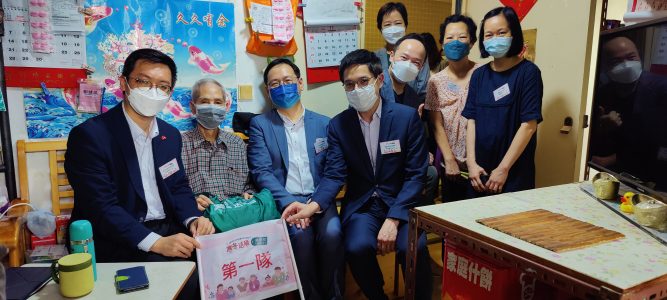Warm Winter Operation 2022-23 (2022-23年度寒冬送暖結伴行)



Warm Winter Operation 2022-23 was a project with the vision of promoting harmony and integration at district level. The project was co-organized by Kwun Tong District Office under Home Affairs Department and Kwun Tong District Social Welfare Office under Social Welfare Department with the support of Kwun Tong District Council. It lasted for 5 months from November 2022 to March 2023.
This project aimed at:
1. Expressing care and concern to older people in need, especially to the families of older doubletons and older people who live alone;
2. Providing them with a sense of belonging in the community through visits and interactions with the volunteers; and
3. Promoting intergenerational harmony by recruiting volunteers from different sectors and age groups to connect with older people.
Throughout the entire project, volunteers had conducted home visits and distributed gift packs containing food and other daily necessities. The target group of the project is older people in Kwun Tong district, especially families of older doubletons and older singletons. To facilitate the project, volunteers from 4 District Elderly Community Centres were involved in the distribution of gift packs. Government officials, including the Under Secretary for Labour and Welfare from the Labour and Welfare Bureau and District Officer from the Kwun Tong District Office under the Home Affairs Department, along with Kwun Tong District Council members participated in this district harmonious integration project to send their warmest regards to the older people.
About 2 600 older people in the district had benefited from the project. The concerted efforts made by different parties signified that Kwun Tong is a district of harmony, and accentuated the spirit of care and mutual support.
Website: https://www.facebook.com/102278462518541/posts/154211210658599/?mibextid=rS40aB7S9Ucbxw6v
Main target group: Vulnerable older people (e.g. at risk or victims of abuse, living alone, poor etc.)
Other target group(s): Older people in general
Sector(s): Long-term care, Other, Social protection
Desired outcome for older people:
Build and maintain relationships